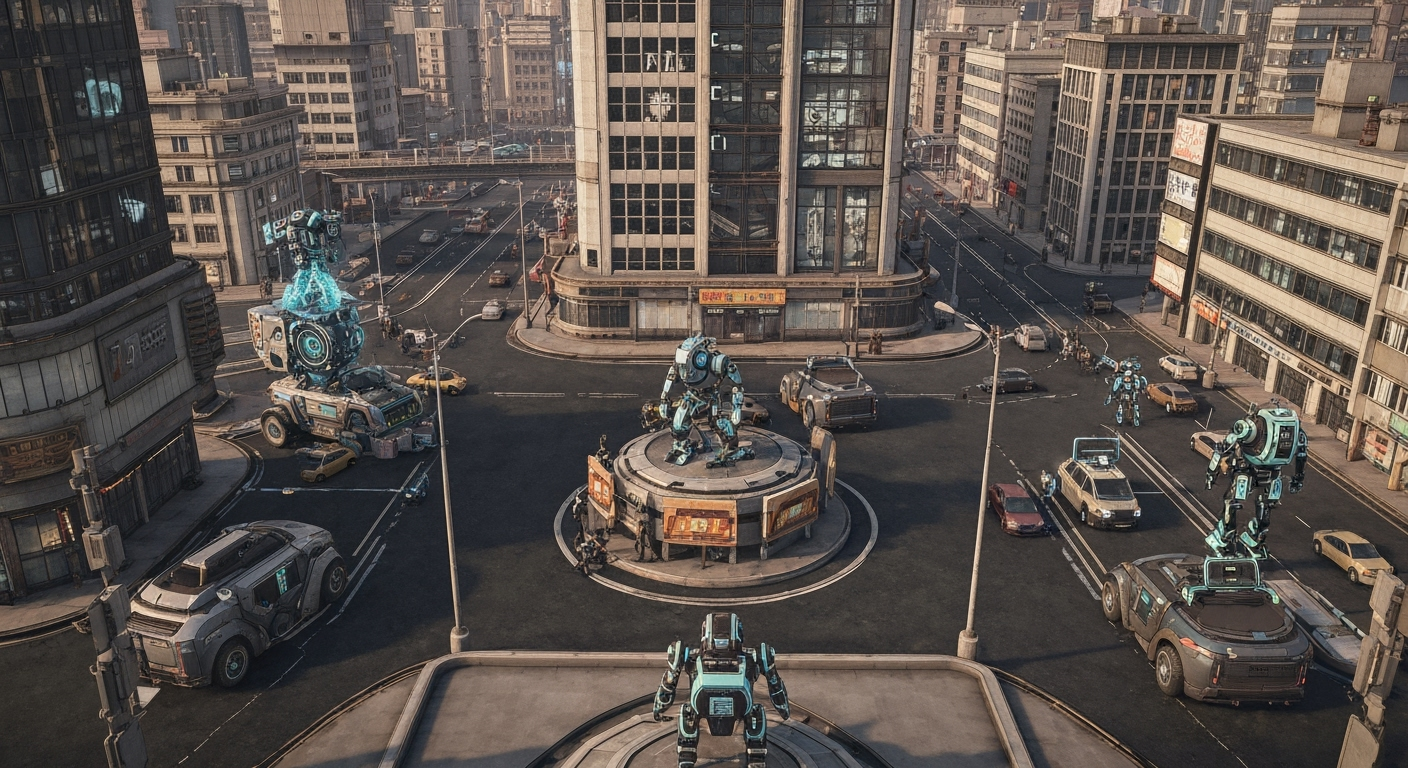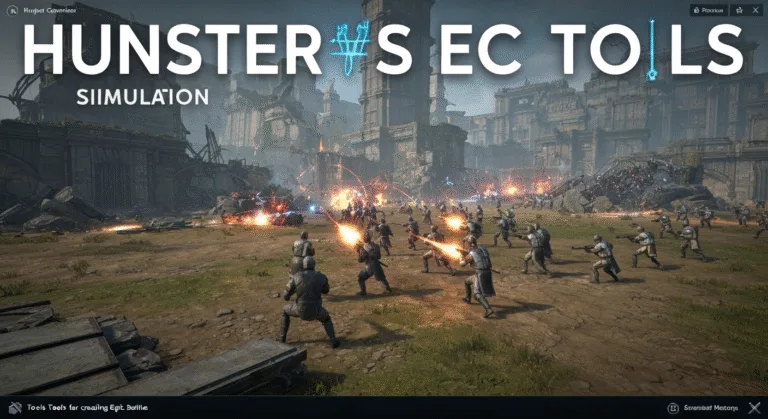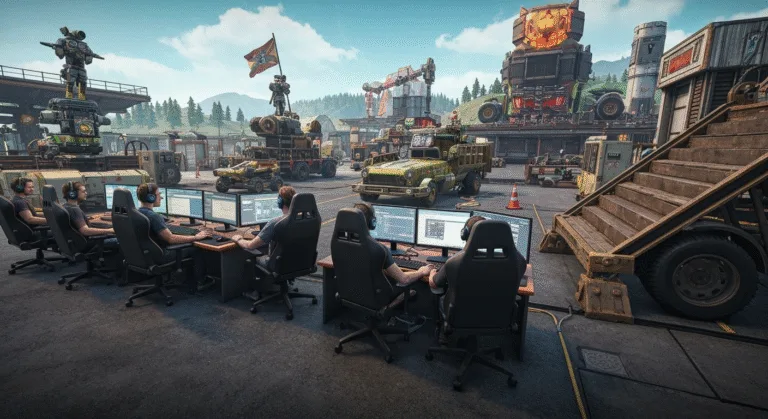Top Simulation Games with Best AI: Realistic Virtual Worlds That Think Smart
Have you ever wondered what it would be like to truly command a virtual civilization, manage a complex city, or even pilot a starship where every entity, from civilians to enemies, behaves with uncanny intelligence and unpredictable realism? Or perhaps you’ve grown tired of games where NPCs act like predictable automatons, breaking the immersion you crave? The heart of a truly captivating simulation game isn’t just stunning graphics or intricate mechanics; it’s the intelligence that breathes life into the world – the Artificial Intelligence (AI).

For years, advancements in computing power have allowed developers to craft ever more sophisticated AI, transforming passive digital backdrops into dynamic, responsive ecosystems. This evolution has redefined what’s possible, moving beyond simple pathfinding to complex decision-making, adaptive strategies, and even emergent behaviors that surprise even the game creators themselves. In this deep dive, we’re exploring the top simulation games with best AI, titles that challenge your strategic thinking and offer unparalleled immersion through their intelligent design. Prepare to discover virtual worlds that truly think smart.
Table of Contents
Why Does AI Matter in Simulation Games and What Makes the Top Simulation Games with Best AI Stand Out?
The quality of a game’s AI can make or break the simulation experience. Weak AI leads to repetitive gameplay, predictable outcomes, and a constant reminder that you’re interacting with code, not a living world. Conversely, robust AI creates dynamic challenges, forces you to adapt your strategies, and delivers truly memorable moments. So, what sets the top simulation games with best AI apart?
It’s often a combination of factors: decision trees that account for multiple variables, machine learning techniques that allow enemies or citizens to adapt to your playstyle, and emergent behaviors that aren’t explicitly programmed but arise from complex interactions. These games offer an experience where you’re constantly engaging with an intelligent adversary or a responsive system, rather than just executing predetermined actions. You’ll find that the best experiences often come from games that prioritize adaptive AI, pushing you to think on your feet.
How Does Adaptive AI Elevate Your Strategic Immersion?
Adaptive AI isn’t just about making enemies smarter; it’s about making the entire game world feel more alive. Imagine a city builder where your citizens react realistically to your decisions – unhappy residents might organize protests or move out, while thriving ones attract more population and boost your economy. In a grand strategy game, rival civilizations won’t just declare war; they’ll form alliances, backstab, and react to your diplomatic overtures with nuanced intentions. This level of responsiveness forces you to consider long-term consequences and adds layers of strategic depth. It’s a key differentiating factor among simulation games with advanced AI.
Can Intelligent AI Create Unpredictable and Emergent Gameplay?
Absolutely! One of the most exciting aspects of intelligent AI is its ability to create emergent gameplay. This is when complex systems, interacting according to their individual rules, produce outcomes that were not explicitly programmed but arise naturally from the game’s mechanics. For example, in a colony management game, a complex system of needs, priorities, and environmental factors can lead to unexpected crises or breakthroughs among your colonists. This unpredictability keeps the game fresh, even after hundreds of hours, and is a hallmark of the top survival games with best ai and other complex simulations. These are the titles you’ll return to again and again because they never play out the same way twice.
Which City-Building Simulations Offer the Most Intelligent Citizen AI?
When it comes to city-building simulations, the intelligence of your citizens is paramount. They’re not just numbers on a screen; they’re the lifeblood of your metropolis.
Is SimCity 4 Still a Benchmark for Realistic Citizen Behavior?
Despite its age, SimCity 4 remains a strong contender for its detailed citizen simulation. Your Sims have jobs, commutes, homes, and needs, all of which are meticulously tracked. The dynamic interplay between residential, commercial, and industrial zones, and how your infrastructure choices impact citizen happiness and productivity, is incredibly intricate. If you neglect public transport, you’ll see traffic jams; neglect safety, and crime will rise. It’s this intricate web of cause and effect driven by underlying AI calculations that makes it a standout among top simulation games with best AI.
How Does Cities: Skylines Push the Boundaries of Individual Agent AI?
Cities: Skylines took the citizen simulation further by modeling individual citizens with their own routines, destinations, and modes of transport. You can literally follow a single citizen from their home to their job, watching them use your roads, public transit, and services. This microscopic approach means that every decision you make as a mayor directly impacts the lives of thousands of unique AI agents. Building a new park doesn’t just increase a “green space” metric; it actually provides a recreational destination for specific citizens, improving their individual happiness. This depth of individual AI behavior makes Cities: Skylines a masterclass in complex simulation games with AI.
What Space and Grand Strategy Games Feature the Most Challenging AI Opponents?
In the vast expanses of space or across sprawling galactic empires, a challenging AI opponent is crucial for engaging gameplay. These games transcend simple combat, demanding complex diplomacy, economic warfare, and strategic foresight.
Why is Stellaris Renowned for its Adaptive Empire AI?
Stellaris, Paradox Development Studio’s grand strategy sci-fi epic, features an AI that constantly adapts. Your rival empires aren’t just following predetermined paths; they’re reacting to your expansion, economic power, and diplomatic stances. They’ll form federations against you if you grow too powerful, exploit weaknesses in your defenses, and even engage in espionage or subversive activities. Their diverse ethics (Militarist, Pacifist, Xenophobe, Xenophile, etc.) genuinely influence their AI’s decision-making, leading to vastly different interactions depending on who you encounter. This results in unpredictable interstellar politics, cementing its place among the top simulation games with best AI.
How Does Crusader Kings III’s Character-Driven AI Create Dynamic Narratives?
Crusader Kings III isn’t just about managing an empire; it’s about managing a dynasty of flawed, ambitious, and often scheming individuals. The AI in CK3 isn’t just making strategic decisions based on resources; it’s driven by the personalities, traits, and ambitions of individual characters. Your deceitful spymaster might try to kill your rival, or your lustful cousin might embark on an affair, leading to unexpected heirs. Every character, whether a vassal, a spouse, or an enemy ruler, has their own agenda, leading to emergent stories of betrayal, love, glory, and madness. This unique approach to character AI makes every playthrough feel like an unfolding historical drama, showcasing a different facet of simulation games with advanced AI.
Which Management and Tycoon Games Excel with Responsive Economic AI?
Economic simulations demand smart AI to create believable markets, respond to supply and demand, and challenge players with dynamic financial landscapes.
What Makes Transport Fever 2’s Economic AI So Engaging?
Transport Fever 2, a transportation management simulation, shines with its economic AI that drives population growth, industrial production, and resource distribution. Industries produce goods only if there’s demand, and cities grow not just by population numbers but by the availability of resources and jobs. The AI behind the industries and cities reacts dynamically to your transport networks. If you build efficient routes, industries flourish and cities expand, creating a satisfying feedback loop where your actions directly shape the simulated economy. The challenge lies in optimizing these complex relationships, reinforcing its status as one of the top simulation games with best AI.
How Does Factorio’s World AI Challenge Your Automation Strategies?
While not a typical “tycoon” game, Factorio’s world AI focuses on the Biter evolution system, which acts as a direct counterpoint to your factory’s pollution. The more pollution your factory generates, the stronger and more aggressive the alien Biters become. This dynamic AI forces you to constantly adapt your base design, defensive strategies, and resource management. It’s a brilliant example of how environmental AI can create a continuously escalating challenge, pushing you to innovate and optimize your automation empire. You’ll find yourself constantly tweaking your defenses and production lines to keep pace with the intelligent alien threat. This is where you see the real depth of complex simulation games with AI.
Why Are These Games Considered the Pinnacle of AI-Driven Simulation?
The games we’ve explored stand out because their AI moves beyond simple scripting. They employ complex algorithms, decision-making trees, and often, adaptive learning mechanisms that allow the game world to react intelligently and unpredictably to your actions. This isn’t just about making the game harder; it’s about making it feel truly alive, a responsive ecosystem where your choices have genuine, tangible consequences.
So, are you ready to dive into virtual worlds that genuinely challenge your intellect? The true measure of a great simulation game lies in its ability to surprise you, force you to adapt, and make you feel like you’re truly interacting with a thinking, responsive world. These are the titles that deliver on that promise, offering endless hours of deep and engaging gameplay.
Which of these AI-driven simulations intrigues you the most? Share your thoughts and tell us about your favorite moments with truly intelligent in-game AI in the comments below! Don’t forget to subscribe to ZlotGaming for more in-depth analyses and guides that help you master your favorite virtual worlds!







